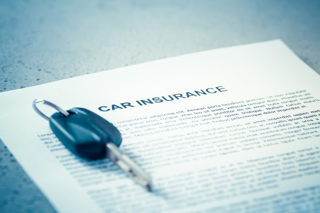Mercia Fleet Management is offering small businesses of up to 100 employees free grey fleet management for six months to help them cut their fleet risk.
The offer coincides with the launch and rebranding of its new website, with greater clarity and functionality for fleet users.
The fleet management division of Tamworth-based EV salary sacrifice specialist Fleet Evolution, Mercia says that the grey fleet, where employees use their own vehicles on company business, remains one of the key risk factors currently facing smaller businesses.
Andrew Leech, head of Mercia Fleet Management and founder of Fleet Evolution, said: “A recent study by Europcar Mobility Group found that 81% of UK businesses rely on grey fleet vehicles, raising concerns about safety compliance and sustainability.
“Managing grey fleet risk is a major challenge for businesses of all size, but especially so for smaller companies many of which may not have a full time fleet manager.”
Leech explained that grey fleet vehicles are typically older, of poorer quality and less fuel-efficient than the average company car, while data shows that driving for work carries a higher risk of collision than normal driving.
“With an estimated 14 million grey fleet vehicles currently on UK roads according to BVRLA estimates and the generally poorer condition of grey fleet vehicles, a road accident involving such a driver becomes an increasingly likely occurrence,” he added.
“As part of this small business offer, we will carry out an extensive review of the grey fleet and a vetting of the relevant employees, their vehicles and their eligibility for driving at work, leading to the issuing of a permit to drive.”
Mercia provides grey fleet management for a number of clients to tackle grey fleet risk, based on a two-fold approach including producing a “clear and unambiguous” driving at work policy for the employer, and checking their suitability to qualify for a ‘permit to drive’ for employees.
The driving at work policy considers all key issues the employer needs to consider, such as duty of care, financial implications, safety concerns and insurance liabilities. This is typically linked to a mobility policy detailing when trains, taxis, hire cars or bicycles should be considered instead of a car.
For example, Mercia advocates the use of a hire car for journeys of less than 100 miles per day as this works out more financially advantageous than repaying the employee under the AMAP (Approved Mileage Allowance Payments) scheme of 45p per mile.
As part of this approach, the company will identify, book and provide location details of the hire vehicle for the employee.
For drivers to qualify for a ‘permit to drive’ they must follow a set of protocols designed to assess the suitability of themselves and their vehicles.
These include providing details of vehicle condition including age, MOT and servicing history and mileage, insurance levels to ensure business usage is covered, proof of driving licence and any penalty points and declaration of previous accidents.
Read our latest Fleet News insight – ‘Protect your business reputation and costs by controlling your grey fleet’.



























Login to comment
Comments
No comments have been made yet.